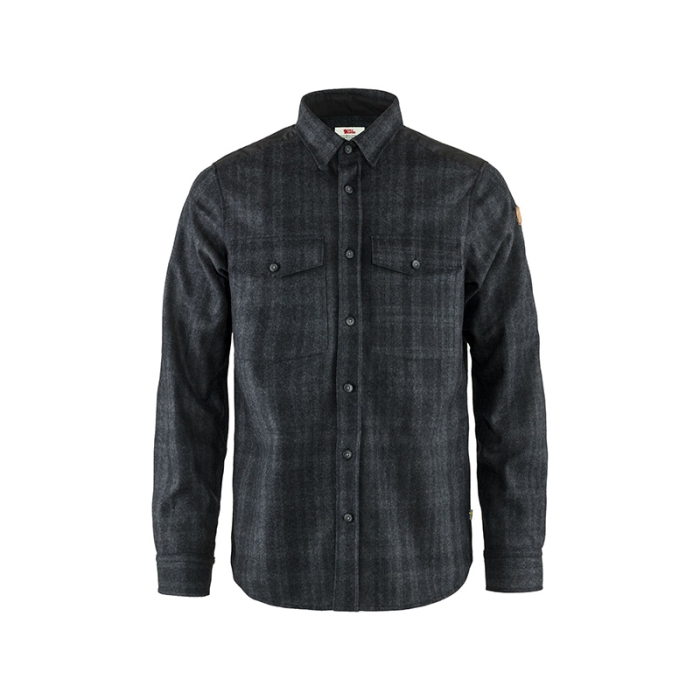Fjällräven Men's Ovik Re-Wool Shirt - Long Sleeved
The Fjallraven Mens Ovik Re-Wool Shirt is a robust shirt made from recycled wool.
The Fjallraven Mens Ovik Re-Wool Shirt is made from recycled wool with G-1000 Eco reinforcements on the elbows and shoulders. The shirt works well as a mid layer on cold days or as a "shirt-jacket" on warmer days.The collar can be turned up and fastened arround the neck. The shirt works just as well out in town as it does on casual outings in the great outdoors.
-80% recycled wool, 20% polyamide.
-Wool wicks moisture away and warms even when damp.
-Polyamide gives durability.
-G-1000 Eco on elbows and shoulders.
-Hidden strap with button under the collar.
-Two chest pockets with flaps and buttons.
-Loop at the back of the yoke.
-Buttons made from recycled polyester.
Outer Material: 80% wool, 20% polyamide
Fit: Regular fit
Sleeve: Long Sleeve
Sustainability Credentials
The Övik Re-Wool Shirt is made from recycled wool and G-1000® Eco on the elbows and yoke. Wool is a natural and entirely biodegradable fibre and therefore a great choice for the environment. Re-wool products take this another step further as they are made of recycled wool. This decreases virgin wool use and finds a new purpose for the wool cut-offs from the production of other garments. This results in lower energy consumption since fibres that have already been spun and dyed and are only mixed to create the desired colours. Those colours are even deeper and more nuanced than those of their garments. The longevity of the product is increased by using the very robust G-1000® Eco in exposed areas. This design aims to decrease the frequency with which products need to be replaced which is a major part of sustainable production and consumption. G-1000® Eco is made from 65% recycled polyester and 35% organic cotton. The recycled polyester comes from PET-bottles as well as second quality fabrics and fabric offcuts that are otherwise unusable. Recycling existing materials means a reduction in the use of raw materials, particularly those from non-renewable sources.






